Working while pregnant is generally safe. Many women do so without any problems. However, it’s important to know when to step back and prioritize the health of the baby and the mother. And the employer should respect that—no questions asked.
Unfortunately, the boss of this expectant woman didn’t care about her condition at all. After she started to go into labor at work, he even refused to let her go to the hospital and forced her to stay in a 2-hour meeting, quietly suffering in pain. Naturally, she wasn’t going to let this go and reported him to HR, which stirred up quite a bit of chaos in the office.
Working while pregnant is generally safe

Image credits: DC_Studio / envato (not the actual photo)
This woman was even able to work up until childbirth, which suddenly started at the office
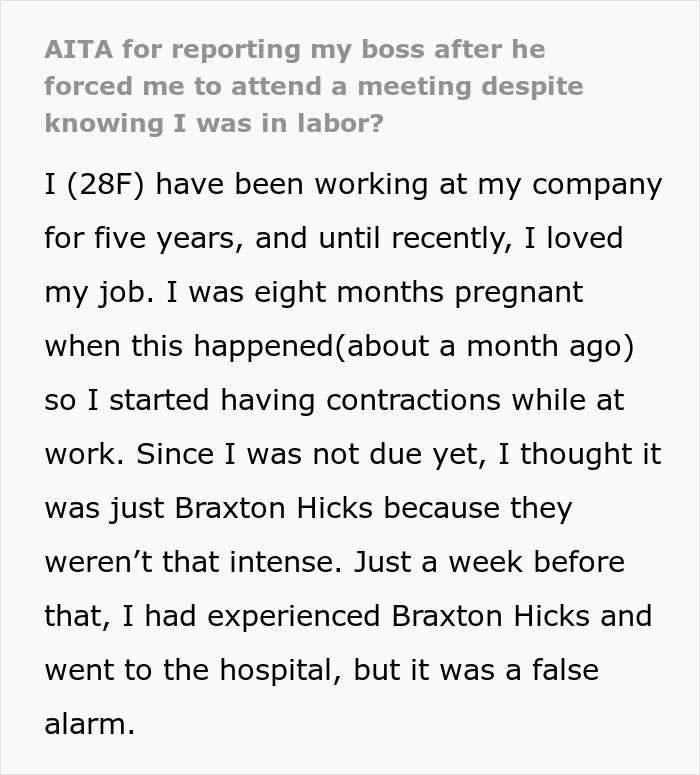
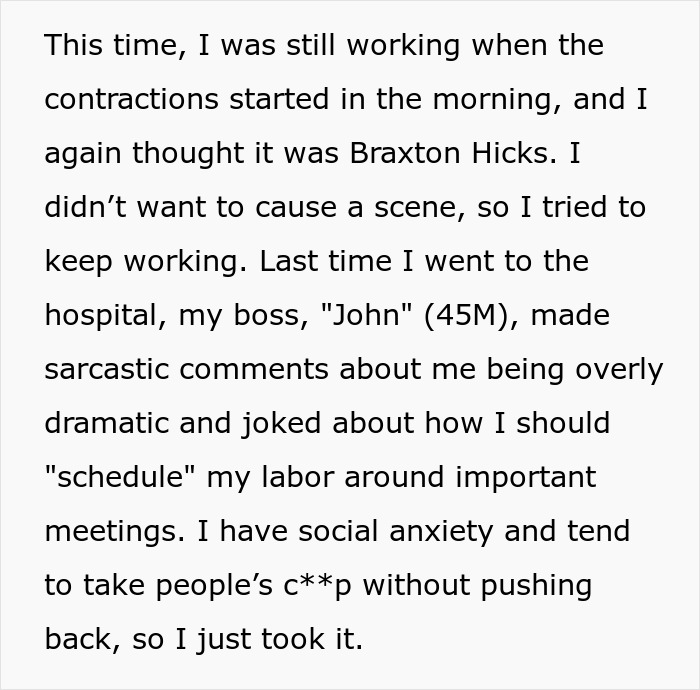
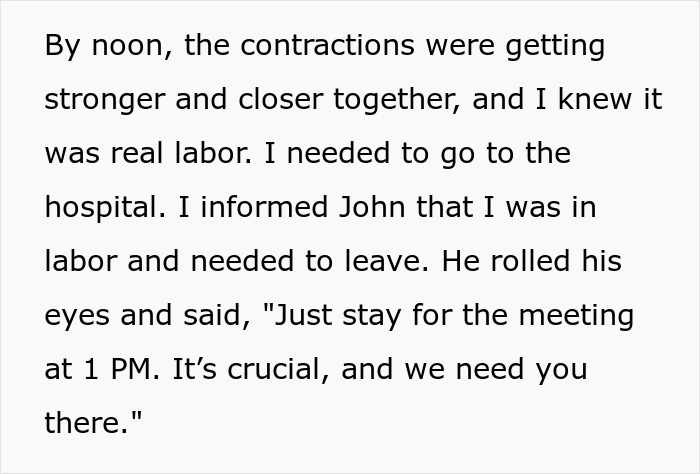
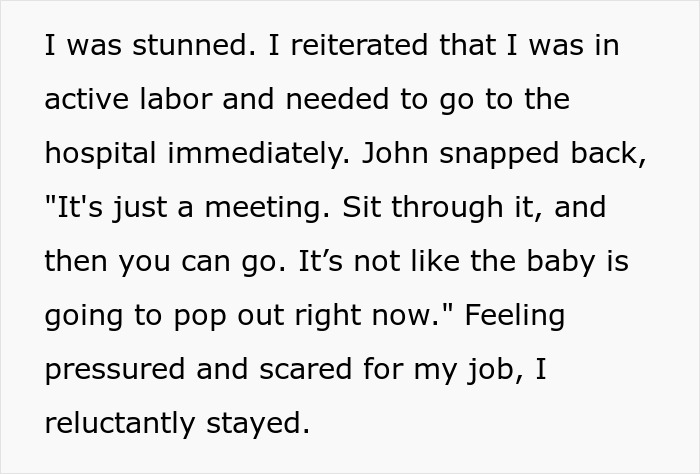
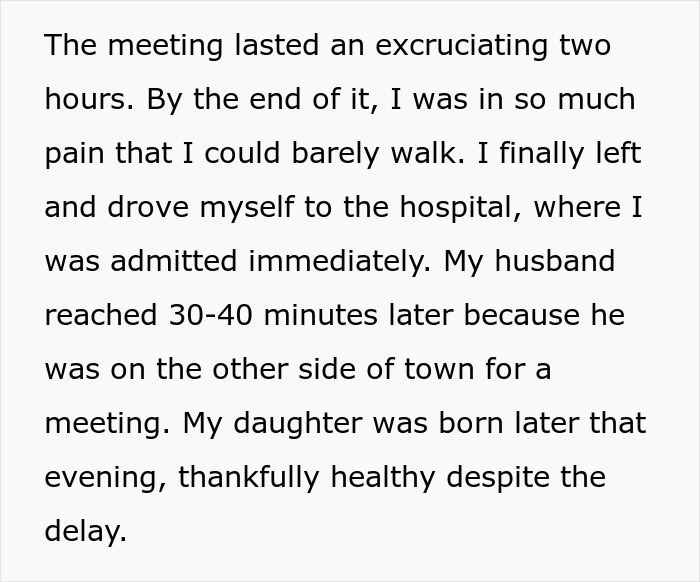
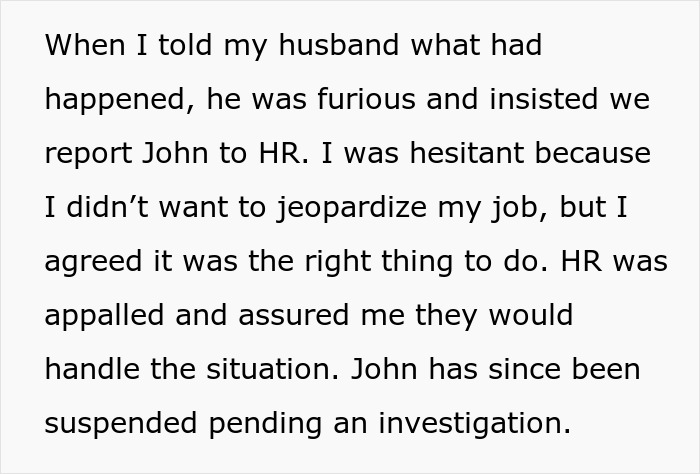
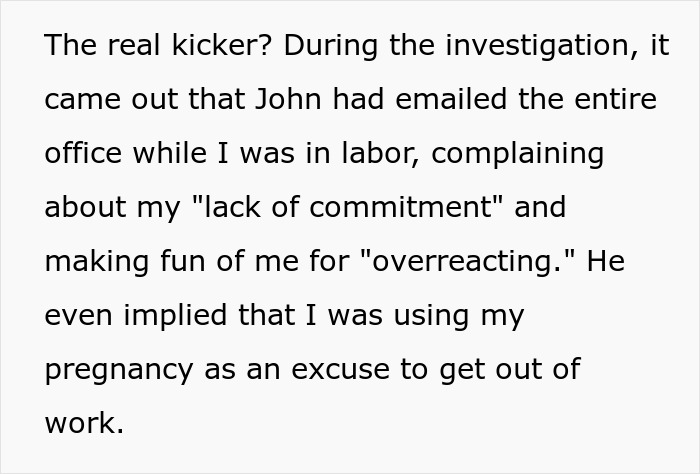
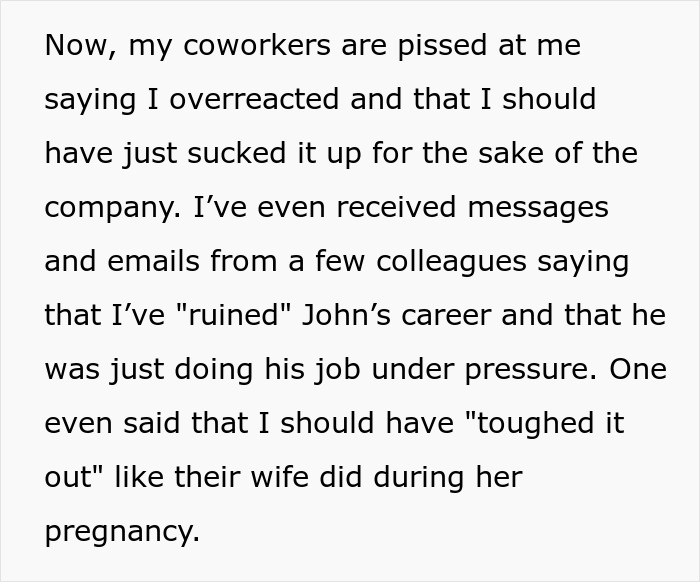

Image credits: Liza Summer / pexels (not the actual photo)
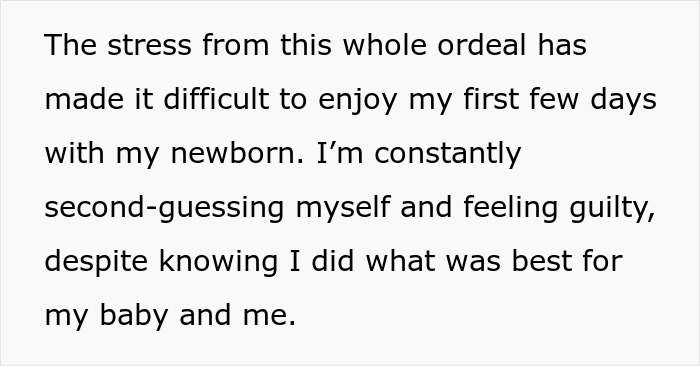
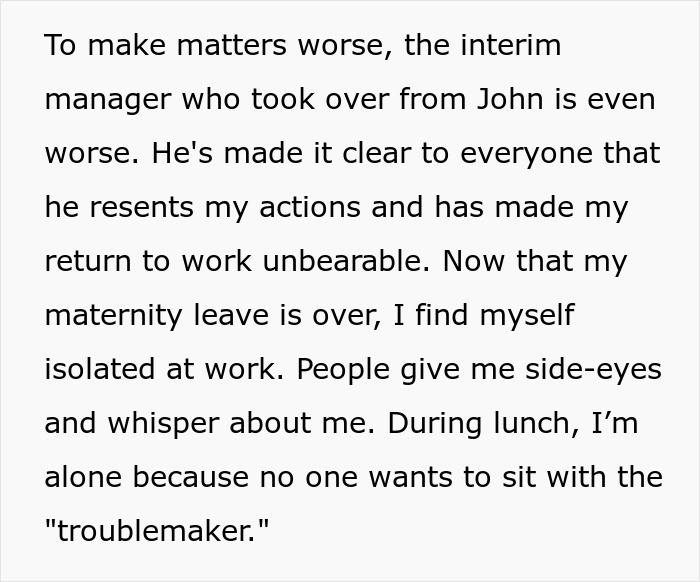
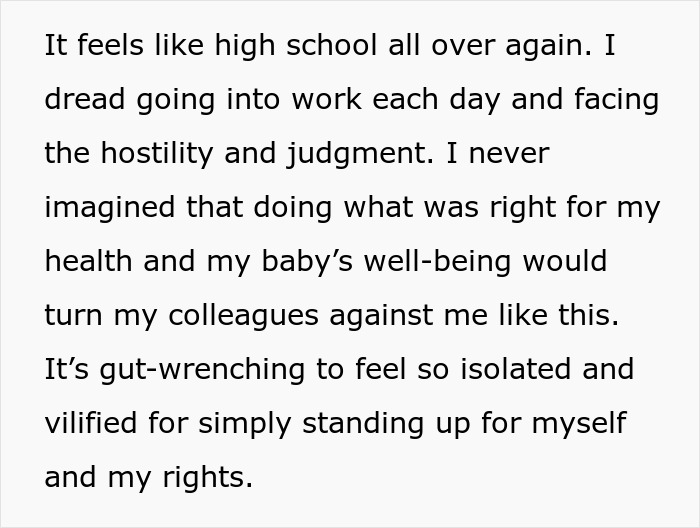
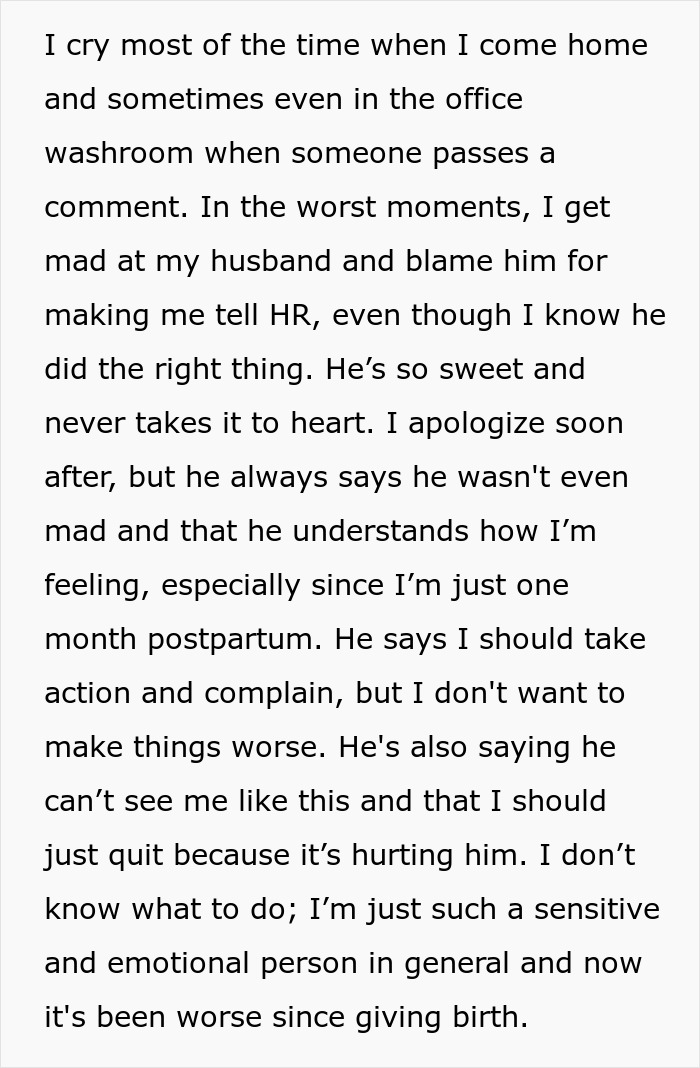

Image source: IllSituation6855
The latest data shows that 66% of mothers work during their pregnancy

Image credits: Jimmy Conover / unsplash (not the actual photo)
For the past five decades, working while pregnant has become increasingly common in the US. In the 1960s, just 44% stayed in the workforce while expecting. By the late 1980s, this figure had reached 67% and has since leveled out, with the latest data showing 66% of mothers working during their pregnancy.
Not only are more expectant women staying in their job positions, but they are also working closer and closer to their due date. In the early 1960s, the majority of females (65%) left the labor force more than a month before birth. Meanwhile, a third continued to work well into their final month. By the late 2000s, the figures had reversed. 82% stayed in the workplace up until the 8th month of their pregnancy, while only 18% were already on leave before then.
The main reason pregnant women stay in the workplace longer is because the US is one of seven countries that doesn’t have federal laws demanding paid parental leave for the birth of a child. As a result, a whopping 72% of new moms return to their full-time or part-time jobs following childbirth.
According to the federal Family and Medical Leave Act (FMLA), established in 1993, employers are required to provide up to 12 weeks of unpaid leave for several medical conditions, including childbirth. However, as we can see from the data, only some take advantage of it, as it’s unpaid and many families would struggle without regular income.
In the past 10 years, relevant authorities have received more than 50,000 pregnancy discrimination claims

Image credits: Vidal Balielo Jr. / pexels (not the actual photo)
Another aspect that needs to be remedied concerning expectant women is their workplace treatment. If a female can’t perform her job because of pregnancy or childbirth, they should be seen as any other employer unable to work due to a medical condition. Yet, the data paints a different picture. In the past 10 years, the Equal Employment Opportunity Commission and Fair Employment Practices Agencies in the United States have received more than 50,000 pregnancy discrimination claims.
Pregnancy discrimination involves treating a woman differently because of pregnancy, childbirth, or any medical conditions associated with it. It also encompasses subtly hostile behaviors against them, like social isolation, negative stereotyping, or rude treatment.
Scientists have even found that pregnancy discrimination in the workplace has the potential to negatively affect both, the mother and the fetus. Lead researcher, Dr. Kaylee Hackney, said, “I think the biggest surprise from this research is that pregnancy discrimination not only negatively impacted the mother, but also negatively impacted the baby she was carrying while experiencing the discrimination. This just shows the far-reaching implications of workplace discrimination and highlights the importance of addressing it.”
Until the US government does something about it, expectant women are advised to educate themselves about the company’s policy on pregnancy discrimination and what their legal rights are. If they start sensing that your condition is being wrongly handled, they shouldn’t hesitate to speak up about it and reach out to higher management when needed.
In addition, they should try to take care of themselves and their baby. Making use of health days along with sick days can prevent getting stressed and burned out. Most importantly, they should prioritize their health and be assertive about the things they can’t do or need from their workplace. Perhaps the manager wasn’t aware they required a particular kind of support, and letting them know about it equips them to be better at making it happen.
Readers supported the woman’s decision to report her boss to HR
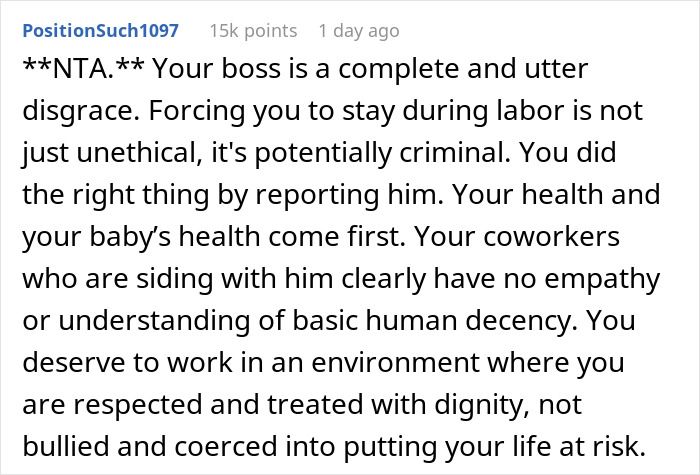
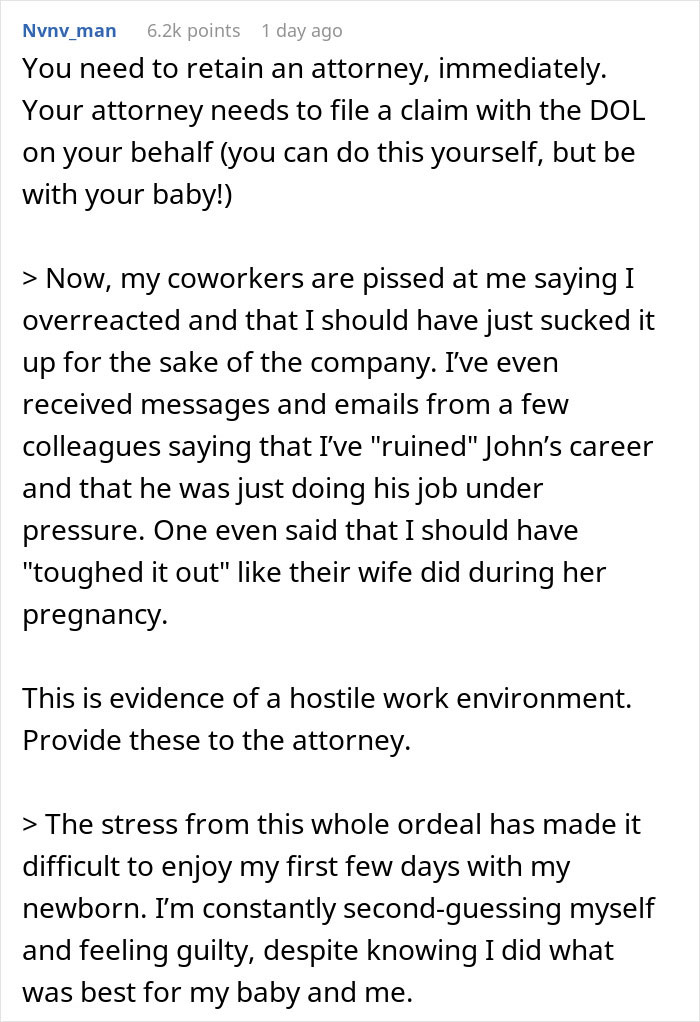
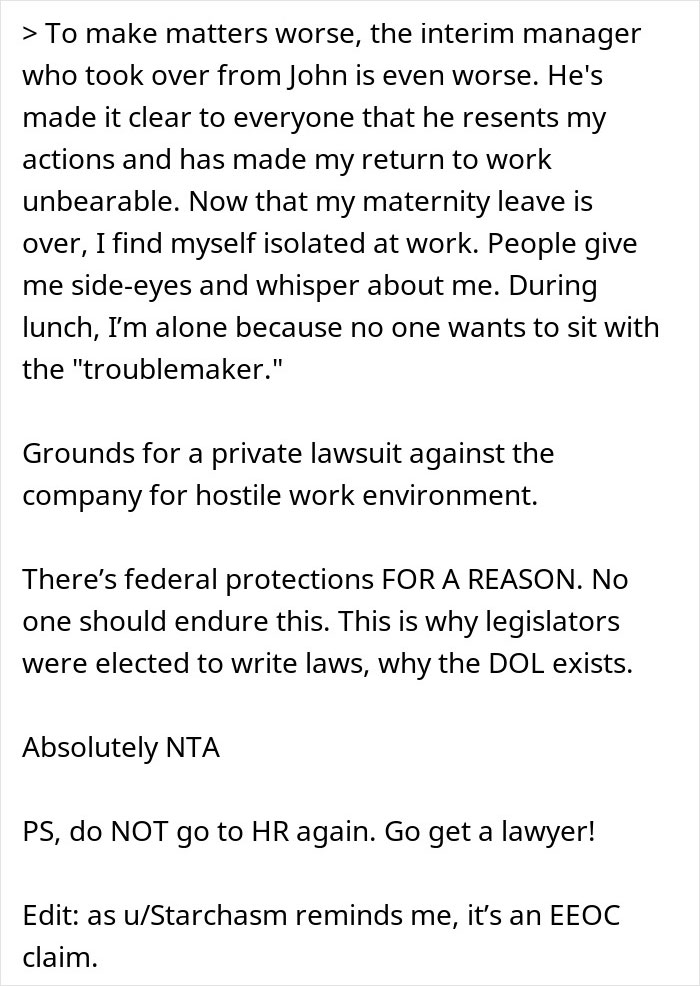
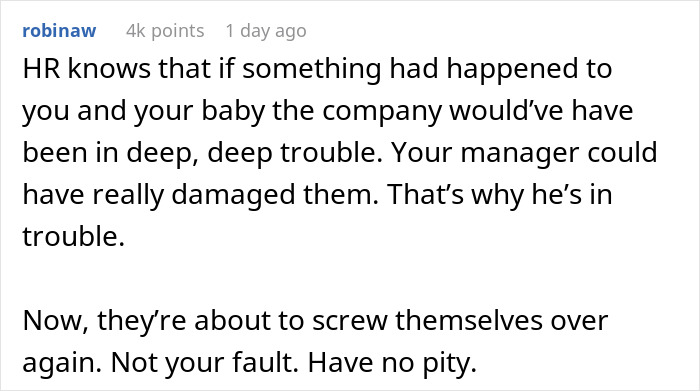

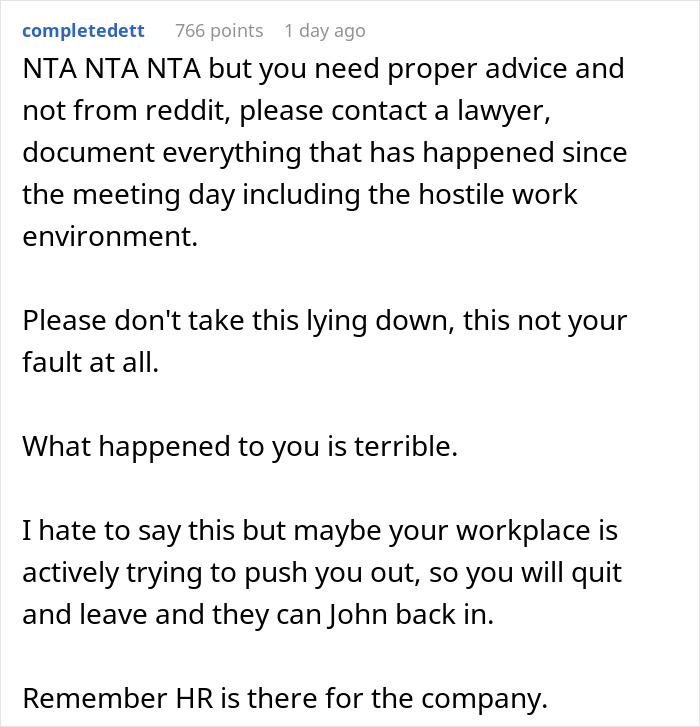

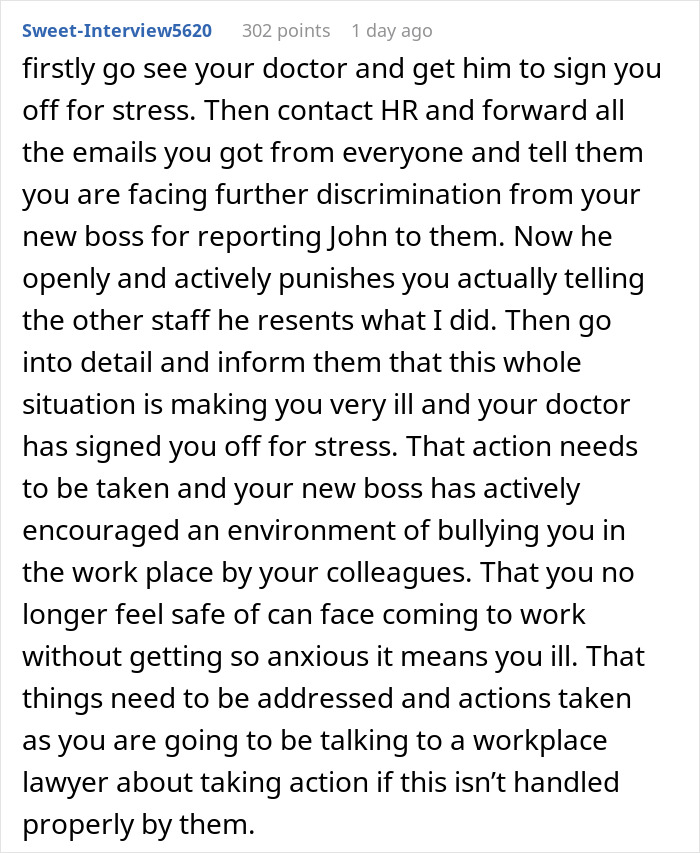
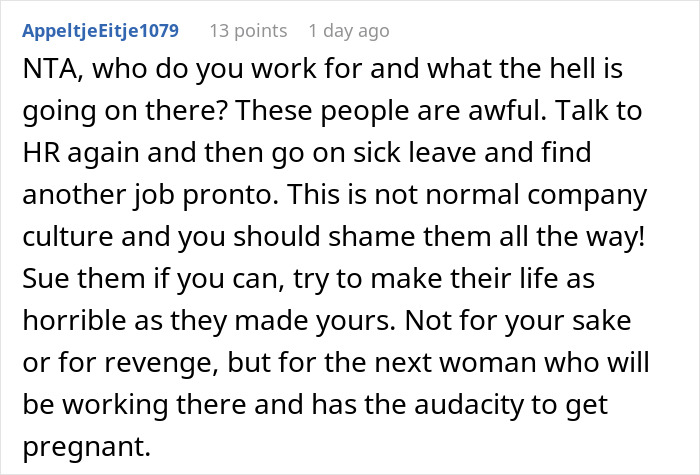

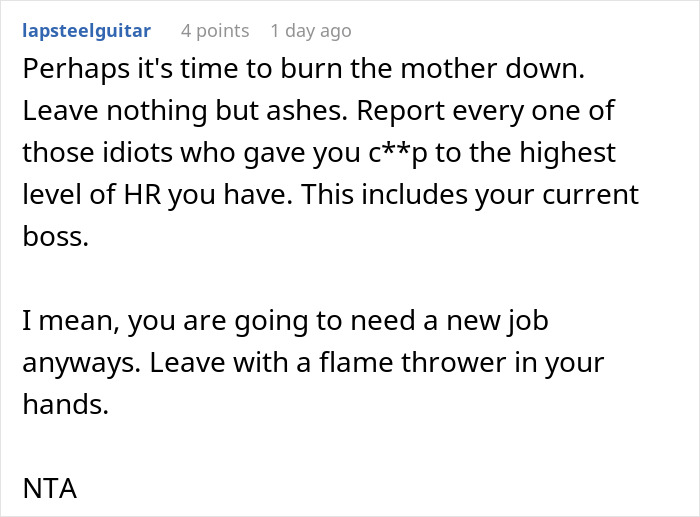
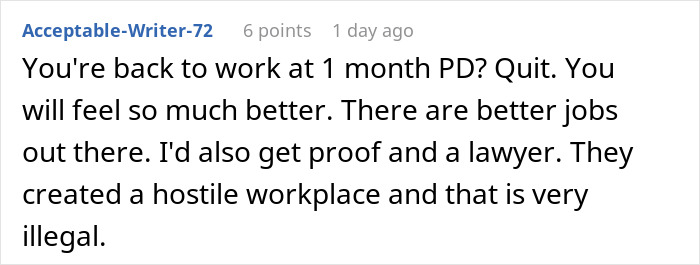
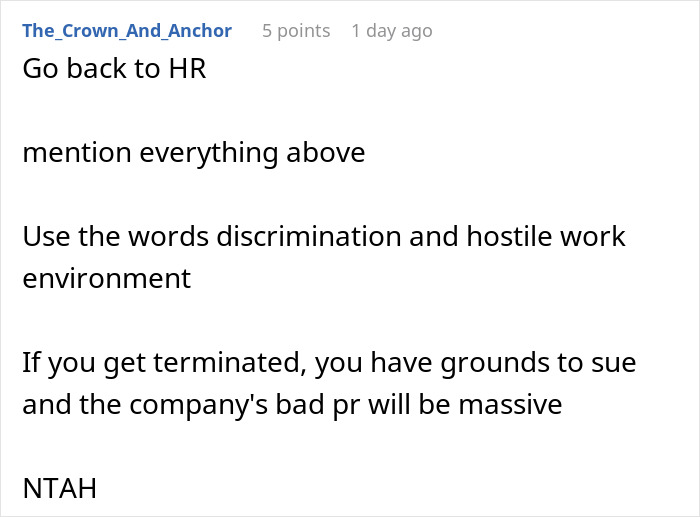


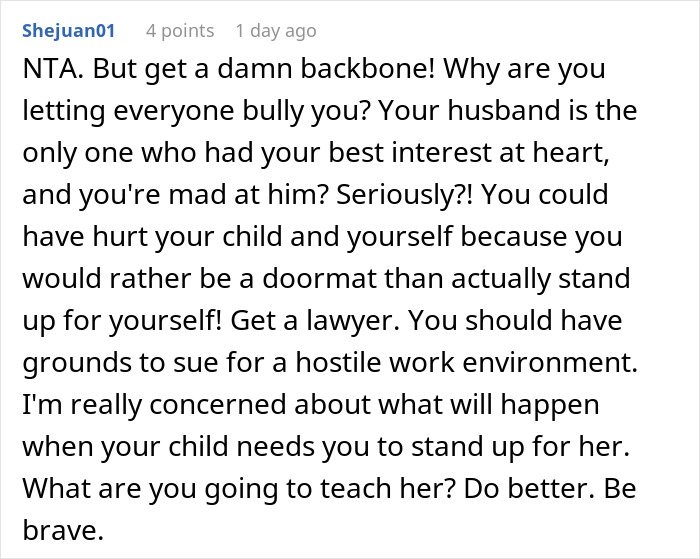






.png?w=600)


